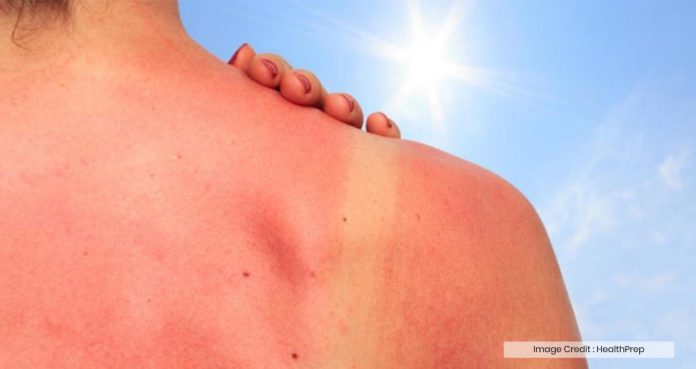In the United Kingdom, skin cancer rates have increased over the last decade, especially in men and young adults, according to the Cancer Research UK.
The incidence rate of melanoma (skin cancer) increased in men by 53 percent. It is estimated that it increased from 19 per 100,000 to 29 per 100,000 between 2004 and 2016. The diagnosis of skin cancer in people between the ages of 25 and 49 increased by 78 percent from the 1990s to 2016.
The research center said that people should take precautionary measures to protect themselves from skin cancer in the UK, also while they are on a holiday.
Men are more vulnerable to skin cancers on their chests and backs, while women on their legs, because of what they wear in the sun. Plus, the risk in men increased if they have a day job that makes them work outdoors.
In the UK, melanoma is the fifth most common cancer, with more than 16,000 cases diagnosed in 2016, among which 3,400 of them were aged between 25 and 49. However, it is still more common in elderly people.
The increased risk of skin cancer has also been associated with the rise in cheap flights, meaning people are more likely to travel abroad more frequently.
Health experts say at least nine in 10 skin cancer cases could be prevented by using a sunscreen. They also advise people to seek shade when the sunlight is too strong (from 11:00 to 15:00 in the UK), wear protective clothing, hat and sunglasses, and apply sunscreen regularly, with a Sun Protection Factor (SPF) of 15.
Chief Executive of Cancer Research UK Michelle Mitchell said, “While some might think that a tan is a sign of good health, there is no such thing as a healthy tan, it’s actually your body trying to protect itself from harmful rays.”
The cancer research and awareness charity will be launching “Own Your Tone Campaign.”
Health Information Manager Karis Betts said, “Sun safety is not just for when you’re going abroad. The sun can be strong enough to burn in the UK from the start of April to the end of September. It’s important that people are protecting themselves properly both at home and further afield when the sun is strong.”
Betts added, “We want to encourage people to embrace their natural look and protect their skin from UV damage by seeking shade, covering up and regularly applying sunscreen with at least SPF 15 and four or five stars.”
NHS Medical Director Stephen Powis said, “Although cancer survival is at a record high, more people are getting diagnosed with melanoma and nearly half a million people were urgently referred for skin cancer checks in the last year.”
“So it’s vital that people take every precaution possible to protect their skin, particularly in the summer months, by wearing sunscreen and spending time in the shade,” added Powis.





















